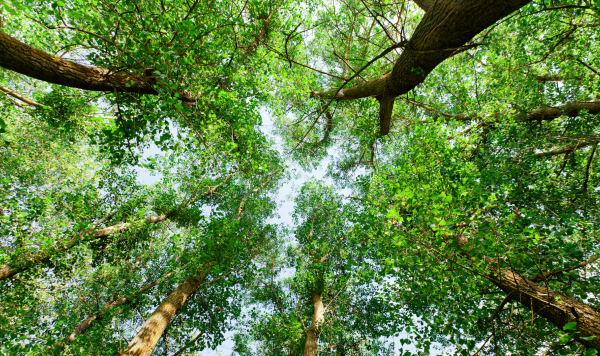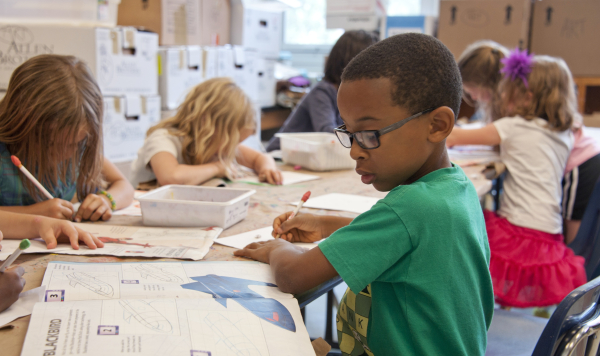This September marks the start of the first academic cycle under a Labour government since 2010. Labour have proposed several measures aimed at tackling the climate crisis, promoting green energy and cleaning up our natural landscapes.
So, what changes can we expect to see under our new government? What environmental legislation do schools need to be aware of over the coming year? And what can your school do to take advantage and get involved?
Working towards a circular economy
The Labour manifesto states that: ‘Labour is committed to reducing waste by moving to a circular economy’, hence the new Environment Secretary Steve Reed stated that creating a roadmap towards a zero-waste economy will be a priority for his department.
A circular economy refers to an economic system in which resources and materials are kept in circulation for as long as possible at their highest possible value - as opposed to the current system of take, use, waste that we currently operate. Find more information on what a circular economy is.
In a school setting, this could involve:
- Integrating ideas about the circular economy and waste reduction into the curriculum; challenge wasteful ideas and practices wherever they occur- not just in geography or science but across the curriculum. Normalise conversations about how things can be reused or repurposed in the classroom or put signs over bins encouraging students and staff to develop a habit of questioning themselves before they throw something away.
- Sharing resources and materials. Ensure there is a good knowledge across the school of what resources and materials are already available, reducing the need to purchase items separately for each department. Where possible, plan lessons around when shared resources are not in use by other departments. This can free up money for the school, which in turn can be put towards buying higher quality, longer lasting resources. Create a school resource itinerary to keep track of what’s available. Subject leader education networks can be a useful tool for sharing resources across different schools.
- Consider how waste from across the school can be utilised for projects. In subjects where things are physically produced, such as Art and DT, or where projects can produce things that are useful elsewhere in the school. A fun project for either subject could be making recycled paper, which could then be used for other art projects. RecycleDevon have a free lesson plan for making recycled paper in school.
- Composting can be a great project for science – think about what food is wasted from your canteen and whether that could be saved and used for something helpful – like starting a composter and school garden. See our website for some useful information on how to compost.
- Buying resources, furniture and materials second-hand, helping to save money for the school and keep things in use for longer. School resources exchange has a great platform for buying and selling second-hand school resources.
Sustainability leadership and climate action plans initiative
This initiative from Department for Education aims for all educational settings to have a sustainability leader/leadership team, tasked with carrying out that institution’s climate action plan. Although introduced under the previous government, this will be a requirement for schools by 2025. According to the advice on gov.org:
- Sustainability leadership could be a group of people or an individual responsible for the development and implementation of a climate action plan.
- A climate action plan is a detailed plan to enable your education setting, or trust, to progress or commence sustainability initiatives.
In May this year, the government released an updated list of resources to assist in and offer guidance for drawing up climate action plans for schools and steps to take to put them into action.
The NLWA has several different campaigns to get your school involved in as part of your climate action plan, either through climate education (one of the 4 recommended criteria for a climate action plan) with a school visit to Ecopark House (opening to schools in January 2025), or through taking action to reduce your school’s waste with ours In The Know programme.
Second hand school uniform requirements
The statutory guidance issued under the ‘Education (Guidance about Costs of School Uniforms) Act 2021’ states that all schools must ensure there is an option in place for parents to buy their children's school uniforms second hand. Released in late 2021, this legislation required that schools be compliant by summer 2023. As a result, all schools should now be offering this service in some way. Furthermore, Labour have pledged in their manifesto to reduce uniform costs further by limiting the number of branded uniform items a school can require, hopefully widening the scope of items which could be traded second-hand and kept in circulation.
Aside from alleviating some of the costs of uniform for parents, setting up a second-hand uniform exchange can help reduce the 1.4 million wearable school uniforms being thrown away each year. Contact the NLWA team (education@nlwa.gov.uk) to join our Uniform Exchange network for advice and support in setting up your own second-hand uniform shop and send us your uniform reuse records so we can tell you how much waste, carbon emissions and money your school has saved! Find out more about The School Uniform Exchange.
Science recommendations to primary curriculum
In the government’s curriculum and assessment review last month, a new curriculum was proposed which ‘reflects the issues and diversities of our society’ and ‘equips young people to thrive in the world and workplace of the future’. With Labour’s focus on creating jobs in the environmental sector for the future, this could suggest a greater emphasis on waste, recycling and environmental issues generally.
In response, the Royal Society of Chemistry, Institute of Physics, Royal Society of Biology and Association for Science Education have recommended several changes to the primary school curriculum to include ‘essential experiences’ related to waste, recycling and environmental campaigns.
These are recommendations and not intended to be taken as changes to the curriculum at this time, however they align well with many of the recommendations made in this article. See the full list of primary school curriculum changes. Keep an eye on the Education Hub for new content, resources and ideas to incorporate these experiences into your primary science lessons.
 Change to EcoPark RRC opening hours on Sunday 27 April
Change to EcoPark RRC opening hours on Sunday 27 April




